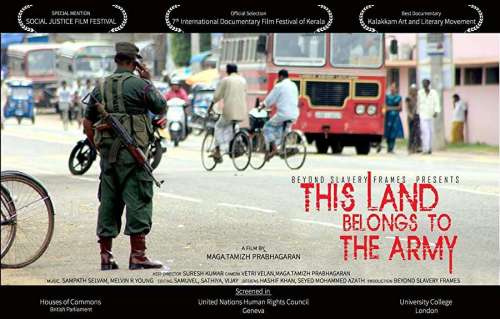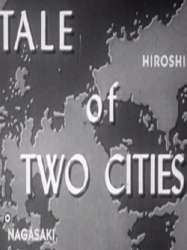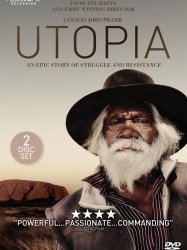This Land Belongs to the Army is a film of genre Documentary
This Land Belongs to the Army (2014)

If you like this film, let us know!
- Infos
- Casting
- Technical infos
- Photos
- Videos
- Film quotes
- Characters
- Music
- Awards
Length 49minutes
Genres Documentary
This Land Belongs to the Army is a 2014 documentary film by young Indian journalist and filmmaker Maga.Tamizh Prabhagaran. This film shows Sri Lankan civil war and shows the current post-war status of Sri Lanka. It also shows several controversial acts by the Sri Lankan government and the armed forces including Sinhalization and Land grabbing by the military.
The film also features new testimonies from Tamil victims and an exclusive interview with a who is said to be a Sri Lankan Army officer, who speaks about the use of chemical and heavy weapons during the civil war.
The film maker was detained by the Sri Lankan State Forces under terrorism charges but the film was completed by January 2014.
.
Synopsis
The movie begins by introducing Sri Lanka as a paradise, viewed by many as the land of Buddha. The white sand beaches in the Sinhalese south are shown, as well as tranquil Buddhist temples.Comments
Leave comment :
Suggestions of similar film to This Land Belongs to the Army
There are 8976 with the same cinematographic genres, 13806 films with the same themes (including 51 films with the same 5 themes than This Land Belongs to the Army), to have finally 70 suggestions of similar films.If you liked This Land Belongs to the Army, you will probably like those similar films :

Tale of Two Cities (1946)
, 12minutesOrigin USA
Genres Documentary
Themes Environmental films, Seafaring films, Transport films, Aviation films, Documentary films about environmental issues, Documentary films about war, Documentary films about historical events, Documentary films about nuclear technology, Documentary films about technology, Political films, Documentary films about World War II

The Mushroom Club (2005)
Origin USA
Genres Documentary
Themes Environmental films, Seafaring films, Transport films, Aviation films, Documentary films about environmental issues, Documentary films about war, Documentary films about historical events, Documentary films about nuclear technology, Documentary films about technology, Political films, Documentary films about World War II
Rating66%






No More Tears Sister (2005)
, 1h18Genres Documentary
Themes Seafaring films, Transport films, Documentary films about law, Documentary films about war, Documentary films about historical events, Documentaire sur une personnalité, Documentary films about politics, Political films
Rating66%






Origin Canada
Genres Documentary
Themes Seafaring films, Transport films, Documentary films about law, Documentary films about war, Documentary films about historical events, Documentary films about politics, Political films, Films about Latin American military dictatorships
 , 58minutes
, 58minutesDirected by Michael Camerini, John Junkerman
Origin USA
Genres Documentary
Themes Environmental films, Seafaring films, Transport films, Aviation films, Documentary films about environmental issues, Documentary films about war, Documentary films about historical events, Documentary films about nuclear technology, Documentary films about technology, Political films, Documentary films about World War II
Rating70%






December 7th (1943)
, 34minutesDirected by Gregg Toland, John Ford
Origin USA
Genres War, Documentary, Action, Historical
Themes Seafaring films, Transport films, Aviation films, Documentary films about war, Documentary films about historical events, Documentary films about technology, Political films, Documentary films about World War II, United States Armed Forces in films
Actors Walter Huston, Dana Andrews, Harry Davenport, George O'Brien, Paul Hurst, James Kevin McGuinness
Rating60%





Jugée trop « compatissante » envers les japonais, et coupée au montage par l’État-Major américain, cette reconstitution hautement réaliste reçut néanmoins l’Oscar® du meilleur documentaire en 1943.
 , 2h2
, 2h2Directed by Kazuo Hara
Genres War, Documentary
Themes Seafaring films, Transport films, Documentary films about war, Documentary films about historical events, Documentaire sur une personnalité, Documentary films about health care, Political films, Documentary films about World War II
Rating81%





Though Okuzaki ultimately holds Emperor Hirohito accountable for all the suffering of the war, ("I hate irresponsible people...the most cowardly man in Japan, is the Emperor Hirohito"), he painstakingly tracks down former soldiers and officers, coaxing them into telling him about the deaths, often abusing them verbally and at times physically in the process (at one point, Okuzaki states that "violence is my forte"). The people he talks to give different accounts of what transpired almost 40 years earlier, some saying that those killed were executed for desertion after the war was already over, while others state that they were shot for cannibalizing New Guinea indigenous people.

Western Approaches (1944)
Directed by Pat Jackson
Genres Drama, Documentary
Themes Seafaring films, Transport films, Documentary films about war, Documentary films about historical events, Political films, Documentary films about World War II
Rating69%






No More Hiroshima (1984)
Genres Documentary
Themes Environmental films, Seafaring films, Transport films, Aviation films, Documentary films about environmental issues, Documentary films about war, Documentary films about historical events, Documentary films about nuclear technology, Documentary films about technology, Political films, Documentary films about World War II

Utopia (2013)
, 1h50Directed by John Pilger
Genres Documentary
Themes Seafaring films, Transport films, Documentary films about law, Documentary films about war, Documentary films about historical events, Political films
Actors John Pilger
Rating76%





The film begins with Pilger's journey to Utopia to observe the changes that have occurred in Aboriginal Australia between 1985, when he featured the poverty in the documentary The Secret Country and the time of filming, 2013. After almost three decades, Pilger discovers that Aboriginal families are still living in extremely overcrowded and poorly sanitized asbestos shacks, and are plagued by easily curable diseases. The Secretary General of Amnesty International, Salil Shetty, who happens to be in Utopia at the same time as Pilger, ponders why one of the world's richest countries cannot solve the problem of Aboriginal poverty and states that the inequity and injustice could be fixed if the will to do so existed. The film goes on to explore some of the issues currently afflicting Australia such as; failed health policies, Aboriginal deaths in police custody, mining companies failing to share the wealth they have acquired with the first Australians and the disputed allegations made by the media and government that there were pedophile rings, petrol warlords and sex slaves in Aboriginal communities and the resulting 2007 intervention. The film also features a visit to Rottnest Island, Western Australia, where an area that was used as a prison for Aboriginal people until 1931, has now been converted into a luxury hotel where tourists are not even informed of the island's brutal history.
 Connection
Connection